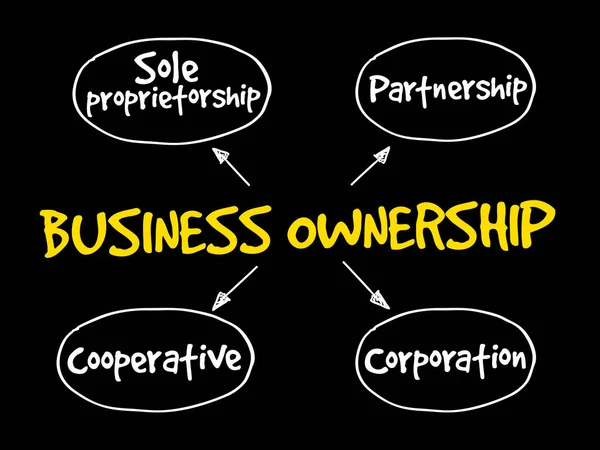Wondering what are the benefits of registering a business in Kenya?
Running an informal business is cheaper and easy. However, you will be locked out of government tenders, the formal banking sector, and other incentives and support like subsidies and tax holidays. On the other hand, running a registered or a formal business is complex and a costly process. It is time consuming and wasteful to acquire the business licenses and comply with many legal regulations such as tax filing majority of investors argue. But, buyers and suppliers will see you as more reputable, credible and reliable thus growing your sales and profits.
In this post, we give you the pros and cons of running a registered business in Kenya. You will also find a guide on how to register one as well as the common business types in Kenya you can choose.
Can you Run a Small Business in Kenya without Registering it?
The majority of Micro, Small, and medium enterprises in African economies are informal. In Kenya alone, the informal sector accounts for 95% of the country’s businesses and entrepreneurs.
why do businesses prefer to operate in the informal sector? Some 60-80% of the informal businesses in Sub-Saharan Africa are involuntarily informal. This leaves just a small portion of entrepreneurs who run informal businesses out of choice. The following sections give you the common characteristics, and reasons why people run informal businesses and finally give you the challenges facing informal small businesses in Kenya.
Finally, we conclude with the negative consequences of running an unregistered business.
Facts about the Informal Sector in Kenya
Informal businesses, also known as “juakali” enterprises in Kenya, are a significant part of Kenya’s economy. They comprise informal traders and artisans who produce goods and services without being registered or regulated by the government. Below are some key aspects of the informal sector in Kenya.
- The informal sector in Kenya accounts for 95% of the country’s businesses and entrepreneurs
- The sector employs approximately 15.96 million individuals or over 83% of the total number of people employed in the country.
- On average, Kenya’s informal sector accounts for about 32% of GDP.
- Most informal sector workers are self-employed (70%), while only a minority are wage employees (20%)
Characteristics of Informal businesses.
Wondering what are the features of most informal businesses in Kenya? Below are some highlights of informal MSMEs in Kenya.
- Many of the employees are family members of the owners.
- They are run in small spaces that are typically smaller than 50m² in size.
- Largely located outside of household premises.
- Some informal business premises are done in fixed, permanent structures while others are done under Jua Kali which means fierce sun in Swahili for open-air spaces.
- The majority of the unregistered businesses do not own their premises but rent them in almost 82% of cases.
- The average unregistered firm operates for approximately 65 hours per week
- A large majority of the businesses (86.8 percent) use their own funds to finance the day-to-day operation.
- Accurate record-keeping is poor with more than half of the informal MSMEs having no bank accounts.
Why People Operate Informal Businesses
Are there benefits of operating an informal business? There are many theories and benefits why people operate businesses in the informal sector.
Businesses operate in the informal sector in Kenya due to a combination of factors, including lack of access to the formal sector, marginalization, involuntary nature of the sector, and taxation and bureaucratic challenges. The table below summarizes these four theories of why businesses operate in the informal sector.
| Theory | Explanation |
|---|---|
| Entry Barriers to the Formal Sector | Some businesses are informal because it’s hard for them to register and join the formal sector. |
| Marginalization and Lack of Access to Resources | The informal sector often operates due to limited access to resources and the marginalization of certain groups such as women, youth, and Pwds. |
| Involuntary Nature of the Informal Sector | Some businesses are informal because they don’t have a choice; they face disadvantages in entering the formal sector. |
| Taxation and Bureaucratic Hassles | Heavy taxes, bribes, and bureaucratic challenges can push businesses into the informal sector. |
In addition to the above theories of the informal sector, the following additional benefits can make you run an informal business.
- Testing the Market: Entrepreneurs test market demand informally before considering formalization.
- Lower Costs: Informal businesses avoid registration fees and compliance costs.
- Flexibility: Informal businesses adapt quickly to market changes without bureaucratic constraints.
- Quick Start-Up: Informal businesses commence operations rapidly, skipping formal registration delays.
- Limited Regulation: Sectors with fewer regulations grant informal businesses more operational freedom.
- Privacy: Informal operations offer privacy by avoiding public disclosure requirements.
- Localized Operations: Informal businesses suit small, localized customer bases without the need for formal registration.
- Entrepreneurial Autonomy: Informal businesses provide autonomy, enabling quick decision-making without extensive approvals.
- Avoiding Tax Burden: Some businesses operate informally to evade taxes, perceiving a lower tax burden.
Challenges Facing Informal Businesses in Kenya
The key obstacles facing small businesses in Kenya including the informal MSMEs are low access to finance, low access to land, corruption, power supply or electricity, crime, water supply, access to technology, and inadequately educated workers.
Access to finance is rated as the top obstacle by various studies over time. Corruption is also a widespread issue, with many unregistered firms seeing it as a severe obstacle. others report ongoing harassment by various government officials.
Operating an unregistered business in Kenya might seem like a convenient way to avoid the costs and complexities of registration. However, it can lead to significant legal, financial, and operational consequences including closure of your business. Here are the negative results of running an informal business.
- Legal Penalties: Unregistered businesses may face legal action, fines, and possible closure of the business for failing to comply with the law
- Limited Access to Formal Markets and Services: Informal businesses may be unable to access certain services, such as formal financial institutions, government tenders, and business permits
- Lack of Legal Protection: Unregistered business owners and workers do not benefit from the legal protections and limited liability that registered businesses enjoy
- Difficulty in Obtaining Loans: Your informal business may have difficulty obtaining grants, loans, or credit, as investors and lenders often require proof of registration and legal status before extending credit
- Limited Credibility: Unregistered businesses may struggle to establish credibility with customers, suppliers, and potential investors, as they lack the legal and regulatory backing that registered businesses enjoy
- inadequate Management Systems: Informal businesses may lack sophisticated management systems and processes potentially leading to inefficiencies.
- Market Size Constraints: Informal businesses may be limited to serving local or niche markets.
Operating an informal business limits your growth. It can also lead to failure. Its therefore good to register your business. The following sections give you the benefits of registering a business in Kenya.
How to register a business in Kenya? – 10 Steps

Registering a business in Kenya involves the legal process of formally establishing and recognizing a business entity with the relevant government authorities. You should check with the relevant authorities such as KRA or seek professional advice from business consultants when registering a business in Kenya.
The general process for registering any form of business in Kenya will involve the following process.
- Business Name Search and Reservation: Begin by selecting a unique business name. You need to check the availability of the chosen name by conducting a name search at the Kenya Business Registration Service (BRS). Once you have a unique name, you can reserve it for a certain period.
- Business Structure: Decide on the legal structure of your business. Common structures include sole proprietorship, partnership, private or public limited company or a cooperative.
- Prepare Necessary Documents: Prepare the required documents, which may include:
- Memorandum and Articles of Association for a company.
- Partnership deed for a partnership.
- Business registration form.
- Business Registration: Submit the necessary documents to the Companies Registry or the relevant government agency depending on the business structure. For companies, this is usually the Registrar of Companies.
- Pay Registration Fees: Pay the required registration fees. The fees vary depending on the type and size of the business.
- Tax Registration: Obtain a Personal Identification Number (PIN) from the Kenya Revenue Authority (KRA). This is a mandatory step for tax purposes.
- Obtain Business Permits and Licenses: Depending on the nature of your business, you may need additional permits and licenses from specific government departments or regulatory bodies.
- Open a Business Bank Account: Open a business bank account using the registered business name and your tax PIN.
- Value Added Tax (VAT) Registration: If your business turnover exceeds the threshold set by the Kenya Revenue Authority, you may need to register for VAT.
- Employee Registration: If you plan to hire employees, you may need to register with the National Social Security Fund (NSSF) and the National Hospital Insurance Fund (NHIF).
Benefits of Registering Your Business in Kenya
There are many benefits you can enjoy by registering your business. They include credibility, professionalism, networking and access to bank loans and government tenders. You will need to comply with all the regulatory requirements to maintain these benefits over time.
Below is a list of the 7 key benefits.
- Limited Liability: Limited liability is a key advantage of certain business structures, such as limited liability companies (LLCs) or corporations. It protects personal assets, meaning that your personal wealth is generally shielded from business debts and liabilities.
- Tax Benefits: Registered businesses often enjoy tax advantages. They may be taxed on salaries and additional compensation rather than the entire business income. Additionally, there are various tax deductions and incentives available to incorporated businesses.
- Build Business Credibility: Registration can enhance the credibility and visibility of a business. It provides a formal and recognized status, which can attract more customers and business opportunities. Registered businesses are often viewed as more trustworthy and professional.
- Protection of Business Name: Registering a business name provides exclusive rights to use that name, helping to prevent others from using a similar name for their business. This safeguards the brand identity and prevents confusion in the marketplace.
- Professionalism: Registration demonstrates a commitment to following legal rules and regulations. It signals professionalism and can foster trust among customers, partners, and other stakeholders.
- Easier Tax Management: Registered businesses typically have a more structured and organized approach to tax management. This can simplify the tax filing process, making it easier to comply with tax obligations.
- Legal Protection: Beyond limited liability, registration helps establish the business as a separate legal entity. This separation can protect the personal assets of the owners if the business faces legal issues or liabilities.
Business Types and Structures in Kenya?
In Kenya, several types of businesses and organizations need to be registered to operate legally. Here is a list of some common types:
- Sole Proprietorship: While not legally required to be registered, many sole proprietors choose to register their businesses for legal recognition and easier access to certain services.
- Partnerships: Partnerships involve two or more individuals running a business together. There are 2 recognised partnership types in Kenya; general and Limited Liability
- General Partnerships: While there is no legal requirement to register, many opt for registration for legal recognition and clarity on roles.
- Limited Liability Partnerships (LLP): An LLP is a hybrid structure that combines elements of both partnerships and companies. It provides limited liability to its partners.
- Companies; A company is a legal entity formed by a group of individuals, shareholders, or other entities to engage in business activities with the primary goal of generating profits.
- Private Companies Limited by Shares (Ltd): A private limited company is a separate legal entity with limited liability for its shareholders. It is one of the most common business structures for medium to large enterprises in Kenya.
- Public Companies Limited by Shares (PLC): Public limited companies are similar to private limited companies but can offer shares to the public. They are often listed on the stock exchange.
- Cooperative Societies: Cooperative societies are formed to meet the common economic, social, and cultural needs of their members. They must be registered with the Commissioner for Cooperative Development.



